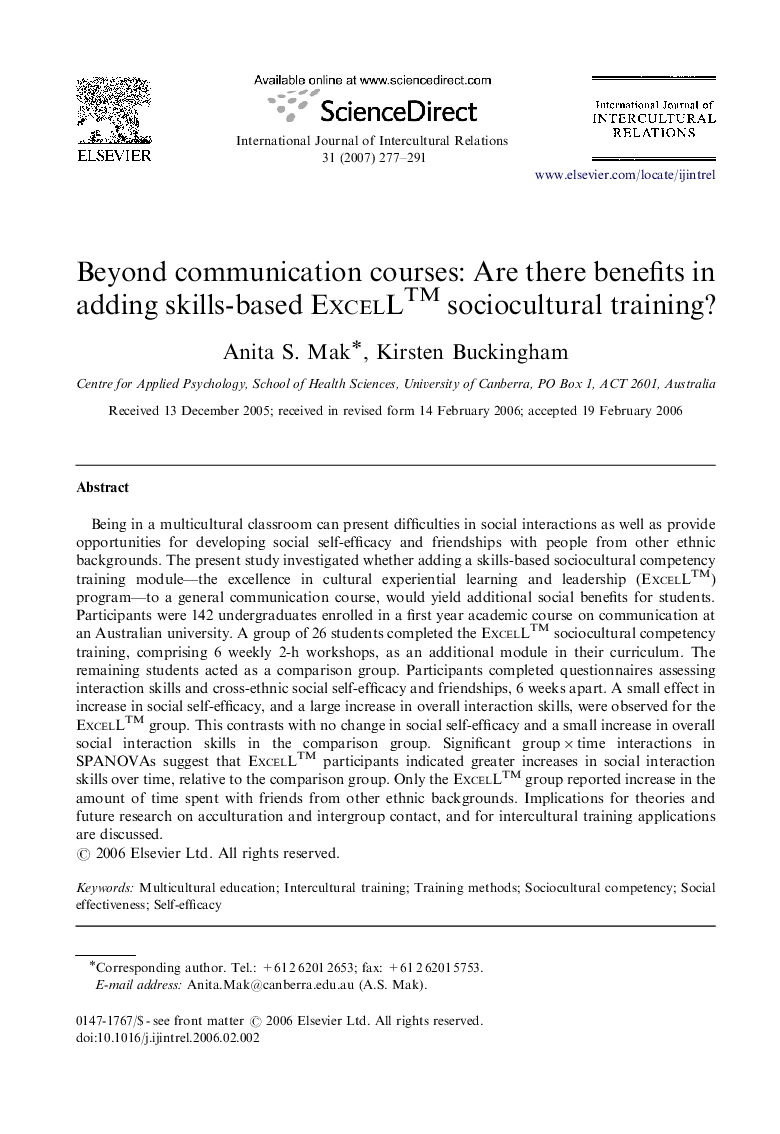| Article ID | Journal | Published Year | Pages | File Type |
|---|---|---|---|---|
| 947462 | International Journal of Intercultural Relations | 2007 | 15 Pages |
Being in a multicultural classroom can present difficulties in social interactions as well as provide opportunities for developing social self-efficacy and friendships with people from other ethnic backgrounds. The present study investigated whether adding a skills-based sociocultural competency training module—the excellence in cultural experiential learning and leadership (ExcelL™) program—to a general communication course, would yield additional social benefits for students. Participants were 142 undergraduates enrolled in a first year academic course on communication at an Australian university. A group of 26 students completed the ExcelL™ sociocultural competency training, comprising 6 weekly 2-h workshops, as an additional module in their curriculum. The remaining students acted as a comparison group. Participants completed questionnaires assessing interaction skills and cross-ethnic social self-efficacy and friendships, 6 weeks apart. A small effect in increase in social self-efficacy, and a large increase in overall interaction skills, were observed for the ExcelL™ group. This contrasts with no change in social self-efficacy and a small increase in overall social interaction skills in the comparison group. Significant group×time interactions in SPANOVAs suggest that ExcelL™ participants indicated greater increases in social interaction skills over time, relative to the comparison group. Only the ExcelL™ group reported increase in the amount of time spent with friends from other ethnic backgrounds. Implications for theories and future research on acculturation and intergroup contact, and for intercultural training applications are discussed.
